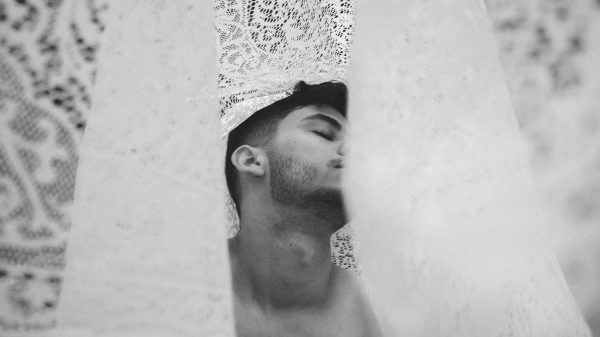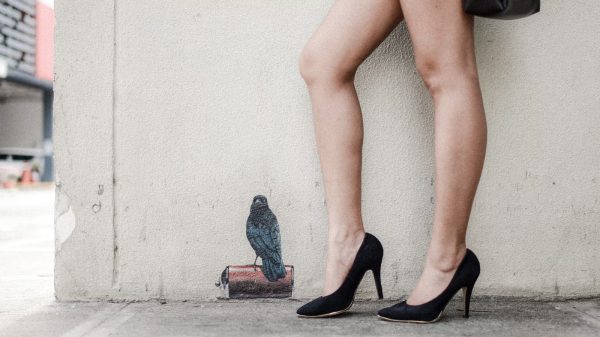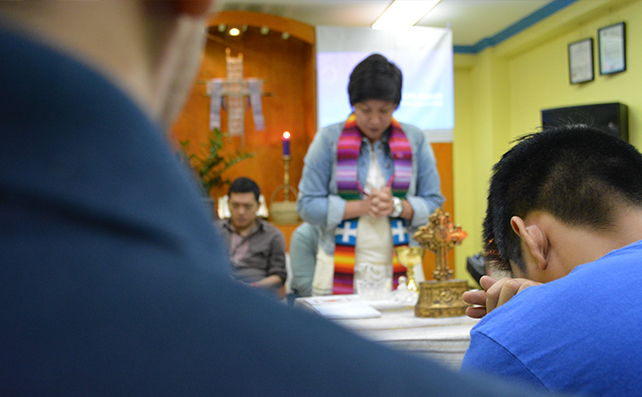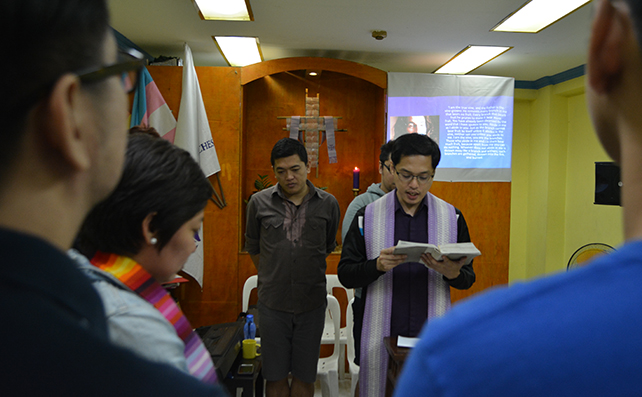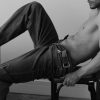Though Sean Ray was born into the Roman Catholic Church, he also went to Christian churches like the Christ’s Commission Fellowship (CCF) and Bread of Life. And since “I have always been flamboyant growing up… I did have issues being judged and questioned by people I know who claim to be Christians,” he said. This made it hard for him to bridge the gap between my sexuality and spirituality until “I got to a point where I just decided to keep my faith (to myself).”
Sean Ray eventually found his way to the Metropolitan Community Church-Quezon City (MCCQC), where he believes he found the “organic meaning of the tag line, ‘Come as you are’. As a gay man, it’s very comforting for me to worship as I am, to the best sense of the word; and it was only in MCCQC that I felt that so called inclusiveness, and I think that it was MCCQC that taught me what it really means.”
IN THE BEGINNING…
The Metropolitan Community Church (MCC) – also known as the Universal Fellowship of Metropolitan Community Churches (UFMCC) – is an international Protestant Christian denomination started by Rev. Troy D. Perry in Los Angeles, California in 1968. Rev. Perry himself was a Pentecostal clergyperson who, in the 1960s, was defrocked because of his homosexuality. By reconciling Christianity with sexuality, MCC therefore came into being as a church with a positive ministry to LGBT people.
MCC has four “core values”, i.e. inclusion (that is, “everyone is included in the family of God and where all parts of our being are welcomed at God’s table”); community (by offering a safe and open community for people to worship, learn and grow in their faith); spiritual transformation (by providing a message of liberation from oppressive religious environments); and justice (by “resisting the structures that oppress people and standing with those who suffer under the weight of oppressive systems”).
These teachings reached the Philippines in 1991, when Bishop Richard Mickley, a former Roman Catholic priest and then MCC pastor in New Zealand, established MCC here. MCC, by the way, is a key player in starting Pride celebrations in the Philippines.
By 2006, MCC has expanded in Quezon City.
HOLISTIC APPROACH
“How are we different from other churches? To start, we don’t tell you you’re cursed just because you’re LGBT,” said MCCQC’s current interim pastoral leader, Pastor Kakay Pamaran, with a smile.
This is the very appeal of MCC to the likes of Sean Ray. “As a gay man, one of the inhibitions (that affect my) going to other churches is the fact that you know that the people around you are judging you inside their minds. Some may think: ‘Bakla ka, tapos Christian ka (You’re gay and you call yourself a Christian)?’” But he added that this isn’t so in MCCQC, where “I felt that genuine acceptance and I really felt a part of the family and community.”
For Pastor Pamaran, MCC is but one of the many faces of Christian expression. But as such, “we believe in a holistic approach. Insisting a singular truth to a plural world is Christian terrorism,” she said.
Also exemplifying MCC’s core values, it is not uncommon to see MCCQC helm programs for other communities in need, e.g. lumad, fisher folks and farmers. “We’re always looking at programs to immerse (the church) in communities in need,” Pastor Pamaran said.
To respond to the needs specifically of the LGBT church members, Pastor Pamaran said that MCCQC has become a sanctuary/safe space where “we accept you as you”, and also offers a “hotline” of sorts (“If you get in touch with us for your concerns, we’ll respond as quickly as possible”).
And for many, this is progressively different from other churches.
OPENING HEARTS AND MINDS
Pastor Pamaran was born into “extreme” Protestantism herself. While she acknowledges that “that’s where I learned of God’s love”, she also had a hard time reconciling her Christian faith with her sexuality.
The first time she visited MCCQC, “I wasn’t progressive then, but I started opening my mind,” she said.
Eventually, “I joined workshops”, and by 2012, she decided to enter the seminary (Union Theological Seminary in Cavite). “I said then that if I encountered a teaching against LGBT people (then) I’d turn myself straight,” she said. But in the seminary, “I was accepted, even celebrated.” This helped her see that LGBT people have a place in God’s table.
And this has been a key message being shared by Pastor Pastor since 2013, when she took over the leadership of MCCQC. “(We) can bridge your faith and your sexuality,” she said.
Pastor Pamaran is now pursuing her Masters in Divinity at UTS.
MCCQC counts from 15 to 20 regular churchgoers (there’s a Bible study at 3:00PM every Sunday, followed by a Mass at 5:00PM), and Pastor Pamaran admitted that “this isn’t a big number. But unlike other churches that put premium on membership, our church mostly exists as a sanctuary.” As such, for as long as it touches people, it stays relevant.
And here, the likes of Sean Ray said that MCCQC is succeeding, indeed.
“Had I not been a part of this church, I wouldn’t have been able to open myself and to be a person of mercy and compassion,” Sean Ray said. “The true meaning of fellowship is to be with a community to share your experiences, as well as learn from experiences of others – which is what Jesus wants for all of us. I found that in MCCQC.”
MCCQC is located at 2/F Aurora Bldg., 836 Aurora Blvd., Cubao, Quezon City.
For more information, visit http://mccquezoncity.com/.



